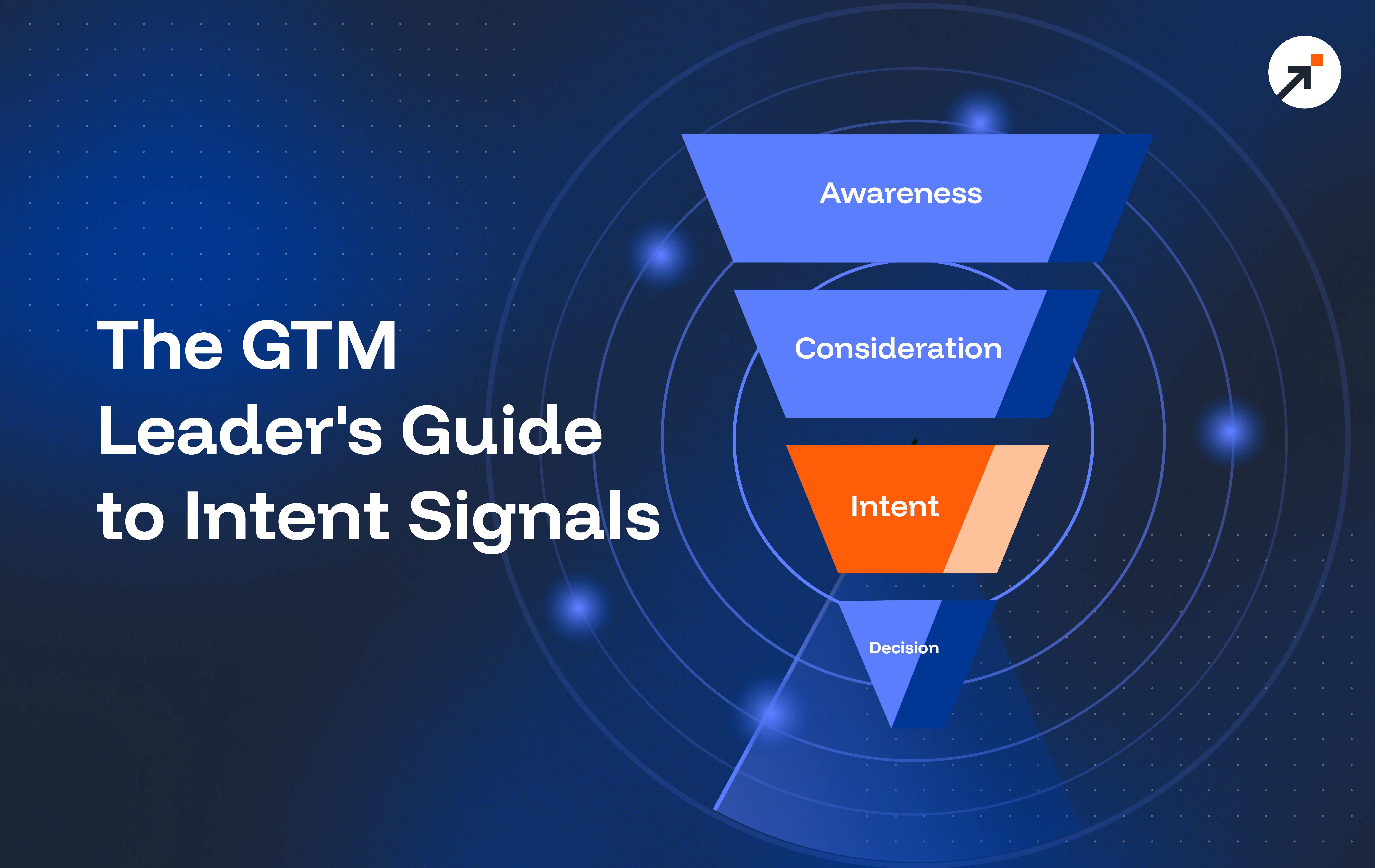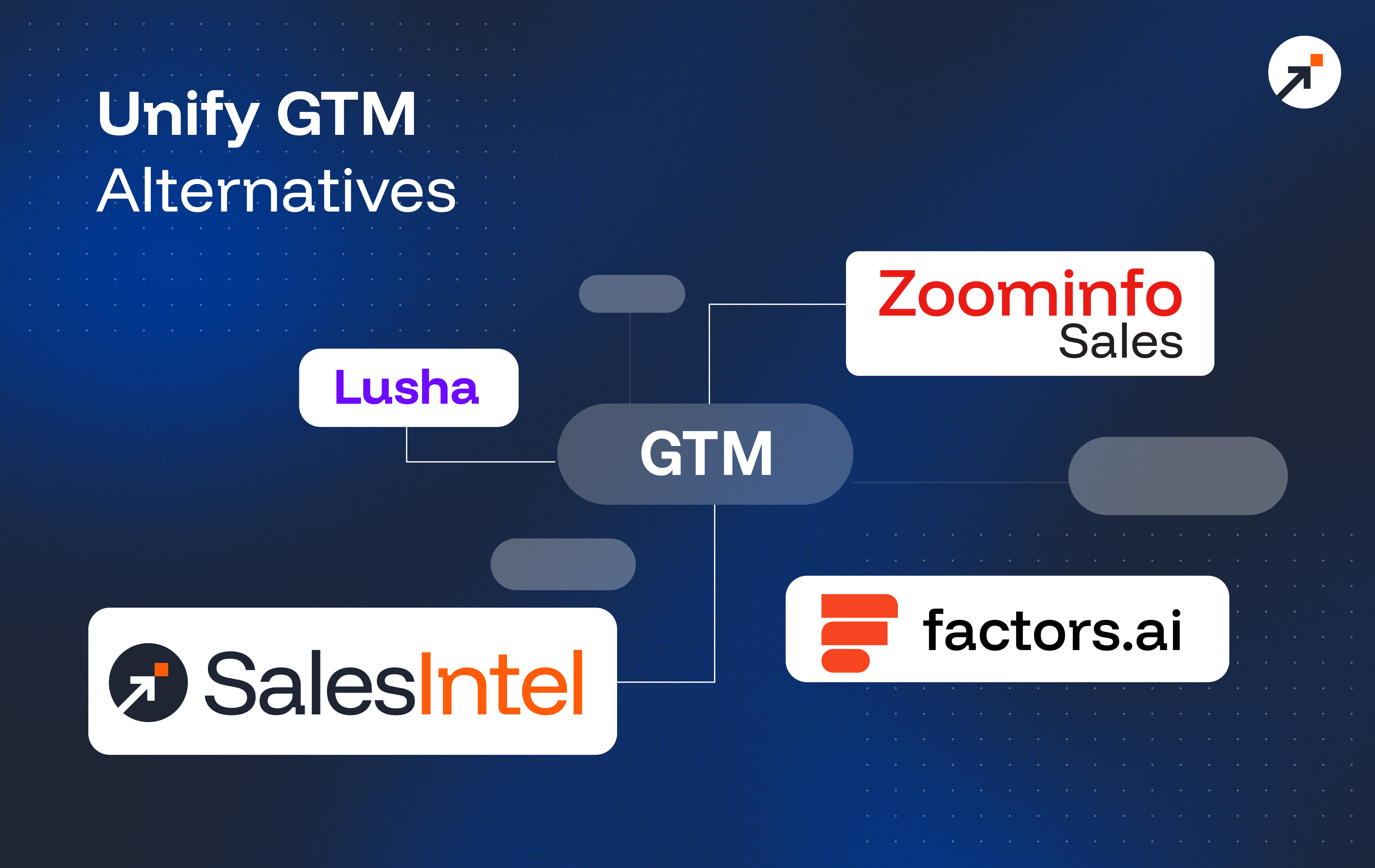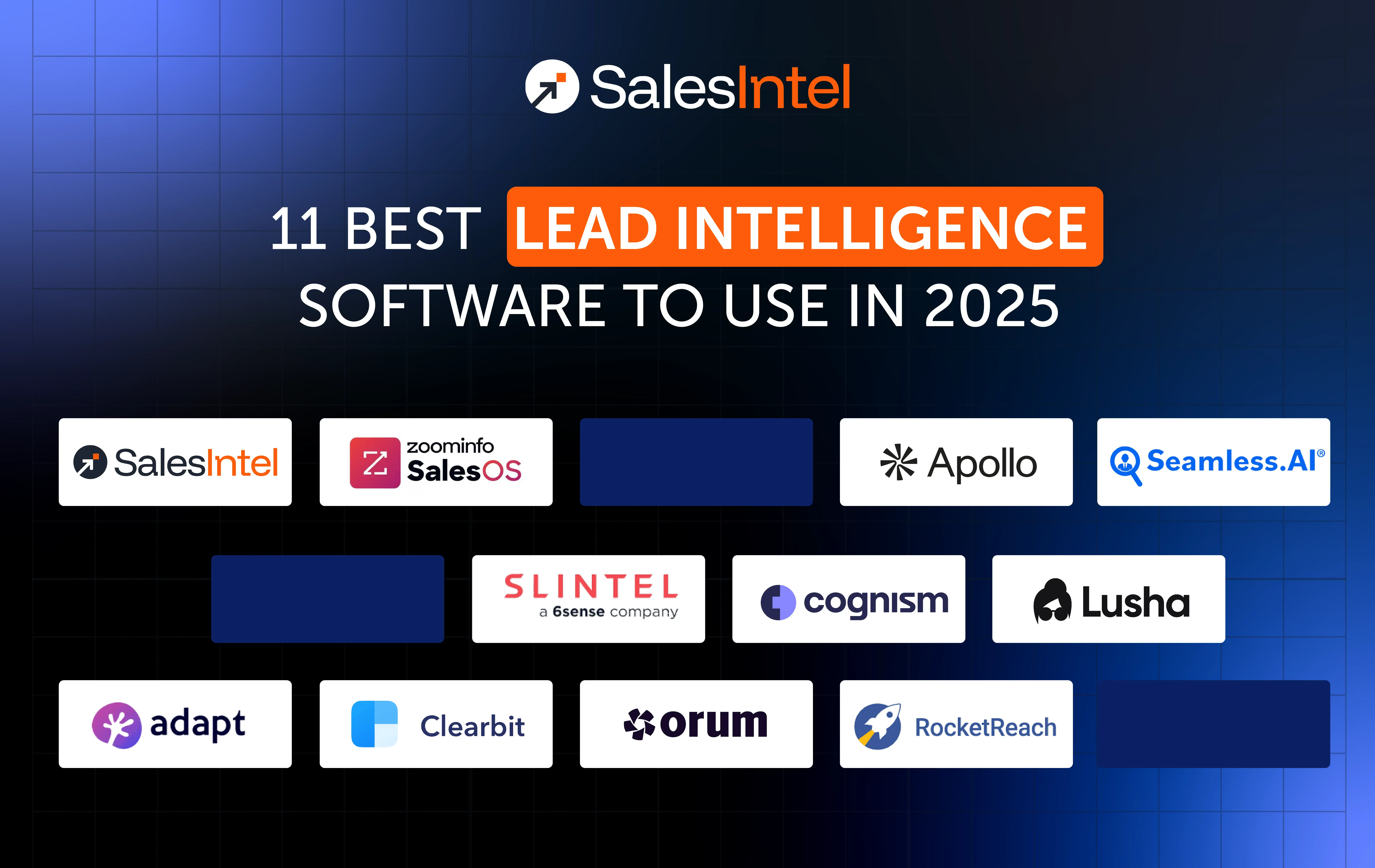In today’s highly competitive business landscape, harnessing the power of high-quality, reliable, and accurate B2B data can make all the difference between success and failure for your sales, marketing, and revenue operations (RevOps) functions. The significance of data in driving business growth and achieving revenue goals must be considered. However, choosing the right B2B data partner is crucial to leverage this valuable resource effectively.
To maximize your leads, conversions, and, ultimately, revenue, it is imperative to select a B2B data partner that aligns with your specific needs and business objectives. This blog will explore four key insights to help you make an informed decision when purchasing B2B data. Considering these factors, you can optimize your data-driven strategies, reduce costs, and unlock your organization’s growth potential.
The Role of a B2B Data Provider
A B2B data provider plays a critical role in enabling businesses to access and leverage valuable data for their sales, marketing, and revenue operations. Here are some key points to consider regarding the role of a B2B data provider:
Does your data provider serve your business case?
When considering a B2B data provider, evaluating whether their offerings align with your specific business case is crucial. A reliable data provider will understand your industry, target market, and goals and offer data solutions that cater to those needs. They should provide relevant data to your business, enabling you to target and engage with your desired audience effectively.
If you get 100M contacts, can you use them all? Do you need them all?
Quantity does not necessarily equate to value regarding B2B data. Acquiring a massive database with millions of contacts may sound appealing, but it’s important to consider whether you can effectively utilize and leverage all of that data.
More contacts do not automatically translate into higher conversions or better results. Instead, focus on data accuracy, relevancy, and the ability to identify contacts that closely match your Ideal Customer Profile (ICP). Quality data that aligns with your target audience and specific needs will yield better outcomes than an extensive but untargeted database.
Can you find real accounts and contacts that match your ICP?
Finding real contacts that closely match your Ideal Customer Profile (ICP) is crucial for successful B2B marketing and sales efforts. A reliable B2B data provider will have robust data segmentation capabilities that allow you to identify contacts based on various criteria such as industry, job titles, company size, or other relevant parameters.
By partnering with a data provider that can help you find contacts that align with your ICP, you can focus your resources and efforts on engaging with prospects more likely to convert into customers.
Potential Pitfalls in Your B2B Data Purchase Journey
When embarking on a B2B data purchase journey, it is essential to be aware of potential pitfalls that can arise. Here are some key considerations to keep in mind:
Contract Terms and Data Ownership:
Before finalizing any data purchase agreement, carefully review the contract terms. Pay close attention to clauses related to data ownership and usage rights. Ensure the contract favors your interests and clearly specifies you have legal ownership of the data once purchased. Additionally, consider any restrictions on data usage or limitations on sharing the data with third parties, ensuring they align with your intended purposes.
Data Quality and Accuracy:
Data quality is paramount in any B2B data purchase. Request and evaluate sample data to assess its accuracy, completeness, and relevance. Look for a data provider with stringent data validation processes to ensure the data’s integrity. Check if the provider offers any guarantees or service-level agreements (SLAs) regarding data quality. A reputable provider will be transparent about their data collection methods and regularly update and verify the data to maintain accuracy.
Customer Support and Maintenance:
Consider the level of customer support and ongoing maintenance provided by the data provider. Timely and reliable customer support is crucial if issues or questions arise during the data implementation or usage process. Evaluate the provider’s responsiveness, availability, and willingness to address concerns or assist. Additionally, inquire about any maintenance or update schedules to ensure the data remains relevant and up-to-date throughout your engagement.
Data Caps and Restrictions:
Understanding whether the data you purchase is capped or unrestricted is essential. Some data providers may limit the number of records or contacts you can access, hindering your ability to scale your campaigns or reach your target audience effectively. Assess whether the data provider offers flexible plans that align with your business requirements and growth objectives. Consider whether additional costs or constraints are associated with expanding your access to data in the future.
By carefully considering these potential pitfalls, you can make an informed decision when purchasing B2B data. Ensure that the contract terms are favorable to you, prioritize data quality and accuracy, evaluate the level of customer support, and understand any data caps or restrictions that may impact your campaigns. Considering these factors will help you select a reliable and suitable data provider for your business needs.
How to Select a Good B2B Data Provider
One essential step in this process is testing the B2B data before purchasing. Testing allows you to evaluate the data’s quality, accuracy, and relevance, ensuring that it aligns with your specific business needs and objectives.
By taking the time to test the data thoroughly, you can make confident decisions and avoid potential pitfalls associated with relying on poor-quality or irrelevant information.
- Data Quality Verification: Testing the data allows you to assess its quality and accuracy. By analyzing a sample dataset, you can verify whether the data meets your standards and expectations. This includes evaluating factors such as data completeness, relevance, validity, and consistency. Testing helps you avoid potential issues that may arise from relying on poor-quality or outdated data.
- Alignment with Target Audience: Testing the data provides an opportunity to ensure that it aligns with your target audience or Ideal Customer Profile (ICP). By examining the sample data, you can verify whether it contains the specific attributes, firmographics, or demographics that match your intended audience. This ensures the purchased data will effectively target the prospects you seek to engage with.
- Compatibility with Internal Systems: Testing the data allows you to assess its compatibility with your internal systems and processes. You can determine whether the data can be seamlessly integrated into your CRM, marketing automation tools, or other systems you use for customer outreach and management. Compatibility is vital to ensure a smooth implementation and utilization of the data.
- Evaluation of Data Segmentation: Testing enables you to evaluate the data provider’s segmentation capabilities. You can examine whether the data can be segmented based on relevant criteria such as industry, job titles, company size, or other parameters that align with your targeting strategy. Effective data segmentation is crucial for personalized marketing and tailored messaging to different segments of your audience.
- Confidence in Data Provider’s Claims: By testing the data, you can verify the claims made by the data provider. This includes claims about data accuracy, freshness, and the provider’s data validation processes. Testing helps you assess whether the provider’s data collection and verification methods align with industry best practices and if they genuinely deliver the quality they promise.
Testing B2B data before purchasing allows you to make an informed decision and mitigate potential risks. It helps ensure that the data meets your requirements, aligns with your target audience, and integrates smoothly with your systems. By verifying data quality and relevancy through testing, you can have greater confidence in the data’s effectiveness and ability to drive successful sales and marketing initiatives.
What are the Options?
When evaluating B2B data providers for your business, it is essential to consider the platform’s ability to serve your specific business case or objective. Different businesses have varying needs, so it is crucial to identify the most viable options that align with your requirements.
You may have distinct criteria for selecting a B2B data provider if you’re a mid-market company. Here are some factors to consider when evaluating platforms:
LinkedIn Sales Navigator is a powerful data provider that offers access to LinkedIn’s extensive professional network. It provides professionals’ detailed profiles and contact information, allowing sales and marketing teams to identify and engage with their target audience. Sales Navigator offers advanced search filters, lead recommendations, and integration with CRM systems for seamless prospecting and relationship-building.
2. SalesIntel:
SalesIntel is a B2B data provider known for its high-quality, human-verified data. SalesIntel is known for its data relevancy and accuracy compared to quantitative data. The data includes but is not limited to, human-verified direct dials, email addresses, job titles, firmographics, technographics, intent data, auto-enrichment, visitor identification, and more. SalesIntel’s data is continuously updated and enriched, ensuring accuracy and relevancy for effective sales and marketing campaigns.
3. Clearbit:
Clearbit offers a suite of data enrichment and customer intelligence solutions. Their platform provides detailed information about companies and individuals, including firmographics, technographics, social data, etc. Clearbit’s data enrichment services help businesses enhance their existing contact data, enabling better targeting and segmentation for personalized outreach.
4. UpLead:
UpLead is a B2B data provider that offers a user-friendly platform for accessing high-quality contact and company data. Their database includes millions of contacts with verified email addresses and direct phone numbers. UpLead provides advanced search filters and prospecting features, empowering sales and marketing teams to find and connect with their ideal customers.
5. Seamless.ai:
Seamless.ai is a sales intelligence platform that combines AI technology with a vast database of contacts and companies. Their platform provides accurate and up-to-date contact information, including email addresses and phone numbers. Seamless.ai offers advanced search capabilities and integrates with CRM systems to streamline prospecting and lead generation efforts.
6. ZoomInfo:
ZoomInfo is a comprehensive B2B data provider that offers a wide range of data solutions for sales and marketing teams. Their platform provides detailed company and contact information, including firmographics, technographics, and intent data. ZoomInfo’s data is known for its accuracy and coverage, enabling businesses to effectively identify and engage with their target audience.
7. LeadIQ:
LeadIQ offers a data platform designed to simplify prospecting and lead generation. Their platform provides access to verified contact information, allowing sales teams to build targeted prospecting lists quickly. LeadIQ integrates with CRM systems and sales tools to streamline workflows and enhance productivity.
8. Datanyze:
Datanyze is a B2B data provider specializing in technology intelligence. Their platform provides insights into the technology stack companies use, enabling businesses to identify potential customers based on the technologies they employ. Datanyze’s data helps sales and marketing teams tailor their messaging and offerings to align with a prospect’s technology needs.
9. Lead411:
Lead411 offers a B2B data platform that provides accurate and verified company and contact information. Their database includes company details, contact information, and news alerts to support sales and marketing activities. Lead411’s platform offers advanced search features and integration with CRM systems for efficient lead management.
10. Lusha:
Lusha provides a data platform with accurate contact information, including direct phone numbers and email addresses. Their platform integrates with popular CRMs and web browsers, allowing sales and marketing professionals to access contact details while prospecting or browsing websites. Lusha’s data helps enhance lead generation and outreach efforts.
These B2B data providers offer a range of data solutions, including contact and company information, data enrichment, advanced search capabilities, and integration with CRM systems. We have mentioned their specific features in our previous blog.
Get The Right Data This Time
In conclusion, making an informed B2B data purchase decision requires careful consideration of several key factors.
First and foremost, prioritizing data quality is crucial to ensuring accuracy, reliability, and relevance.
Secondly, assessing the industry expertise and relevance of the data provider will help align the data with your specific business needs.
Additionally, considering data scalability and customization options ensures the data can adapt to your evolving requirements.
Lastly, emphasizing compliance and data privacy safeguards your reputation and builds trust with customers. Try before you buy.
By considering these four important factors, businesses can make confident decisions, optimize their data-driven strategies, and ultimately drive success in their sales, marketing, and revenue operations.
Take the first step and start your evaluation process with SalesIntel. Schedule a SalesIntel demo tailored to your Ideal Customer Profile and get the pricing details.




